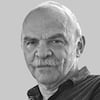Back to the wars
South Sudan, the world's newest country, has poverty and petroleum in abundant supply – but peace is a little harder to come by
The lieutenant for Moral Orientation told me that the job of the South Sudan people was to demonstrate that their inveterate enemy, the president of Sudan, Omar Bashir, was wrong.
“He said that we cannot form a country because, without a strong government, we will relapse into ethnic war. That’s ridiculous. We are South Sudanese, and that’s what matters.”
South Sudan is the world’s newest country. It came into existence on July 9, 2011, after decades of fighting against the Islamic government of the North. South Sudan has poverty and petroleum in abundant supply. The new state was only about a year old when I went to work at Bentiu on the border with Sudan. Not far away was Manquay, a village of a few hundred huts in the middle of nothing on dry, heat-cracked ground by a dark river. The huts were squares of two meters by two, with walls of cane and roofs of black plastic garbage bags; inside, perhaps a brown plastic chair and a wooden cot, a pile of clothing on the earthen floor. Among the huts, women chopped branches, lit fires, swept the hard earth with reed brooms, ground grain and carried buckets of water on their heads.
The soldiers who fought on the border in the war that was officially over against the other Sudan lived in Manquay with their wives and children. A couple of dozen boys nerve-rackingly jumped and milled around us yelling at us. Four or five others carried on a firefight with pistols of clay. One had a Kalashnikov of clay and sprayed them all with bullets.
You don’t know how many dead folk are here among us in our huts”
“I thought an officer would have a house,” I said to the lieutenant so as not to say I presumed he did not live in the same misery.
“An officer must be with his soldiers,” he replied. “You see us so poor because we have just come out of a very long war. This will soon change.”
The lieutenant for Moral Orientation spoke in the tone of one accustomed to being obeyed: six feet tall and powerfully built, with six lines cut in his forehead that identified him as a Nuer, the country’s second most populous ethnic group.
“What kind of moral orientation can I give them if I don’t live here among them?” he said.
“It’s a difficult life,” I commented.
“Who said that making a country was easy?” he retorted.
He told me this was the teaching of his respected father, who had died fighting the enemy.
“My father, and so many others. You don’t know how many dead folk are here among us in our huts.”
A few meters further along a dozen women were seated on the ground around a fire of embers, where they were toasting grains of coffee and boiling a chicken. They said they had no money to buy sorghum to make their wine, so they got by on coffee and a water pipe, which went from mouth to mouth, smoked with puffs of delight. Many had babies suckling on their breasts, and laughed and talked, all at the same time. One asked me if I really believed the war was going to end, as people were saying. I said I didn’t know, I hoped it would, so did everyone. And she said, of course, we all hope it will. But I want to ask you another question. The words whistled in her mouth; she had, like many, the Nuer marking for women: a large hole where her four lower front teeth ought to be.
“Yes, of course,” I said.
“When the war ends and they don’t need soldiers anymore, what will become of us?”
A little over a month ago another war broke out in South Sudan. Soldiers of the Dinka — the most numerous ethnic group of President Salva Kiir — are killing thousands of their Nuer compatriots. Bentiu is one of the most violent parts: more refugees, more dead, more fighting. There are places where war seems the natural way to pass your time.
Tu suscripción se está usando en otro dispositivo
¿Quieres añadir otro usuario a tu suscripción?
Si continúas leyendo en este dispositivo, no se podrá leer en el otro.
FlechaTu suscripción se está usando en otro dispositivo y solo puedes acceder a EL PAÍS desde un dispositivo a la vez.
Si quieres compartir tu cuenta, cambia tu suscripción a la modalidad Premium, así podrás añadir otro usuario. Cada uno accederá con su propia cuenta de email, lo que os permitirá personalizar vuestra experiencia en EL PAÍS.
¿Tienes una suscripción de empresa? Accede aquí para contratar más cuentas.
En el caso de no saber quién está usando tu cuenta, te recomendamos cambiar tu contraseña aquí.
Si decides continuar compartiendo tu cuenta, este mensaje se mostrará en tu dispositivo y en el de la otra persona que está usando tu cuenta de forma indefinida, afectando a tu experiencia de lectura. Puedes consultar aquí los términos y condiciones de la suscripción digital.









































